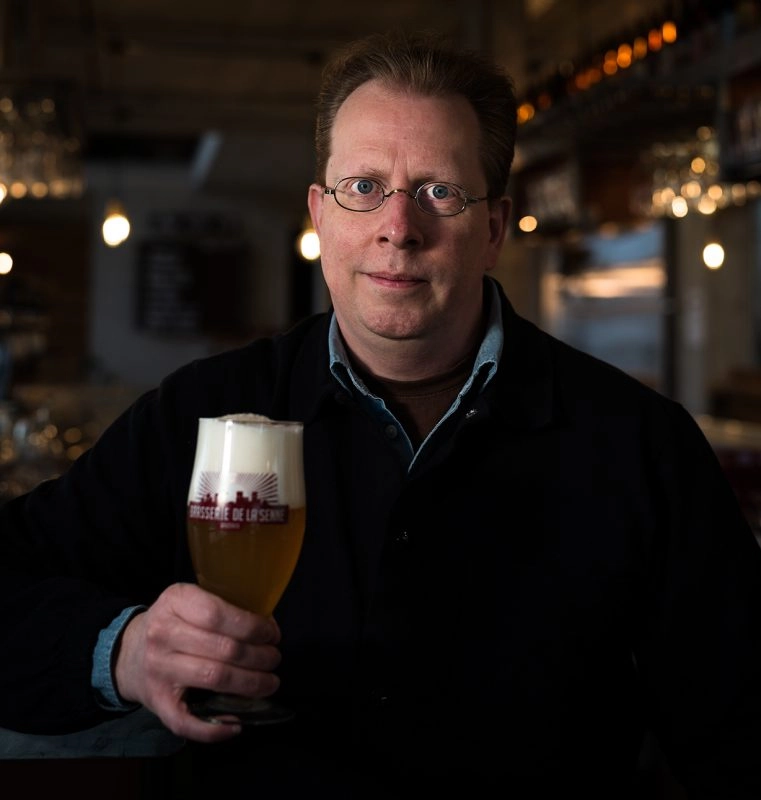Yvan de Baerts of Brasserie de la Senne talks about his motivation as a brewer, his love for the city, the evolution of craft beer culture, the state of sector due to Covid-19, and the need for support to local bars and restaurants to ensure their survival.
Integrity authenticity and taking the time that is needed to make good beer. Those are the kind of values that the Beer Idiots can live by, and they are the ones that Yvan de Baerts espouses for Brasserie de la Senne, one that he and co-founder Bernard Leboucq have followed religiously since founding the brewery in 2003.
It was under a different name back then and just outside of the city, but their desire was always to be based in Brussels, and here they are, at the Tour & Taxis area with a brewery, shop and fab bar that’s just fit for Baerts’ ambition to make the beer he loves.
“I think a brewer has two duties,” he said. “The first is making his yeast happy. That’s the most important one. Then, it’s making his beer accessible.”

La Senne moved to Brussels in December 2009 and has been the inspiration for many of the craft brewers in the city, some of them even spending some time working there, or getting advice from Baerts. He’s a beer buff, a graduate of the Meurice Institute for Brewing and Malting Science in Brussels. In between brewing, he now teaches the history of beer and brewing at the institute.
He specialises in old Belgian brewing techniques and from talking to him, we know he loves his yeasts.
“There are many ways to speed up the process,” he said. “That’s good for your wallet. It’s very good for making more money of course. For the beer it’s not… We let the yeast manage things here.”
Pre-Covid, La Senne’s production was about 13,500 hl a year. The brewery could produce up to 17,000 hl a year with the current equipment, and by adding more that could jump to 25,000-30,000 hl.
The right size
That maximum size is about where Baerts wants to be, to produce high quality beer and still being in “total control of what we do”. The brewery has eight permanent beers and three seasonal ones plus up to seven collaborations a year. It employs about 20 staff.
The style is a mix of German, English and Belgian inspired beers. About 90% goes to the bars and restaurants rather than retailers, but that has changed with Covid, though Baerts hopes to revert back to that focus once they open up. Production has fallen by 30%.
“Bars are the soul of Belgium and especially the soul of Brussels,” he said. “We see now that without bars, Brussels is nothing…it is a city with zero interest. It is a city of an addition of problems, but when the bars are there it is one of the nicest cities on Earth.”
Tsunami of bankruptcies
He wants politicians to get behind the bars, because if they fail then the smaller brewers will start failing. And the danger lies in the major brewers buying up the bars that fail, keeping them tied to their beers.
A “tsunami of bankruptcies” in the bar and restaurant sector will result a human tragedy and hurt brewers and others, Baerts said. He has talked to a few politicians about the issue but there is “no light in their eyes” to help.
He sees this as a function of layers of Belgian governments, with each one blaming the other for the lack of supporting actions. The result: inaction.
“Wake up!”, he said in reference to the politicians.








